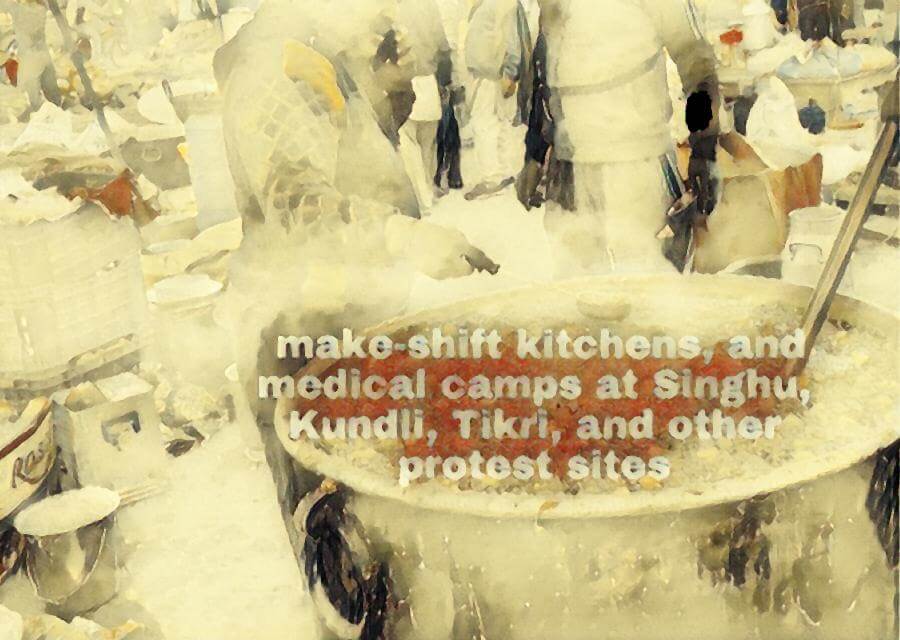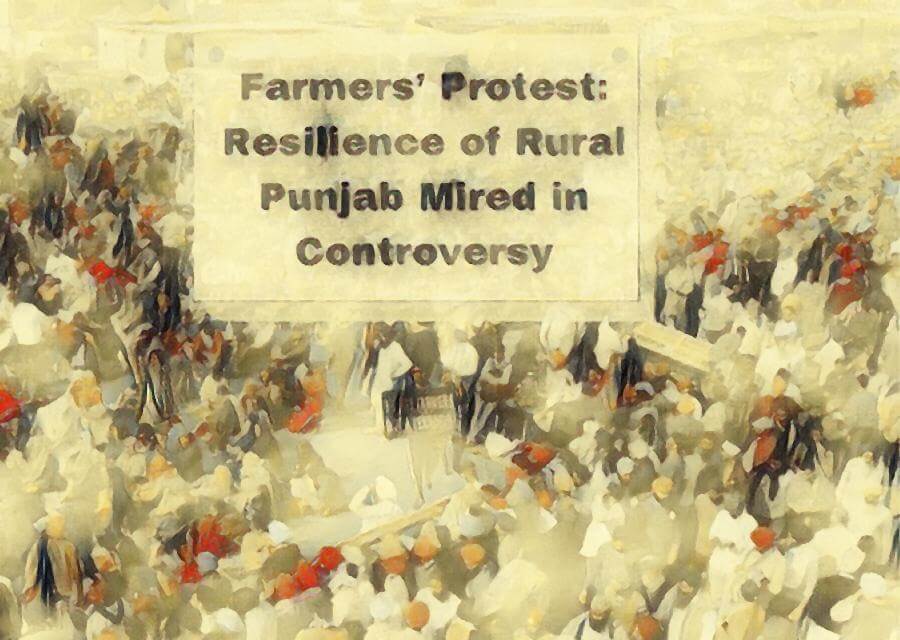Reading Time: 4 minutes
An economist, Rama revisits the farmers’ protest that is mired in controversy after the Republic Day vandalism. An exclusive for Different Truths.
Every night as I snuggle into my quilt in the cozy environs of my home, I cannot help thinking about the protesting farmers sleeping out in the open braving inclement chilly weather conditions.
Caught between claims and counterclaims, the ugly politics that the farmer’s protest is mired in makes it difficult for the mango man to empathise with the farmers’ cause.
Caught between claims and counterclaims, the ugly politics that the farmer’s protest is mired in, makes it difficult for the mango man to empathise with the farmers’ cause. We must wait for the fog to clear.
Notwithstanding the controversy, my heart goes out to the farmers’ protesting the recent farm laws – the first law that makes the public markets virtually redundant, the second sets the ground for contract farming at pre-agreed prices and the third removes state control over the stocks of cereals, pulses, oilseeds, potatoes and onions by traders and producers. Farmers want the acts to be scrapped but there are questions that baffle me.
I wonder if repealing the recent acts, restoring the status quo will bring prosperity to the farmers.
I wonder if repealing the recent acts, restoring the status quo will bring prosperity to the farmers. Had this really been the case, we would not have heard about farm distress and farmers’ suicides. The fact is farming is not remunerative especially for the small and marginal farmers who constitute 80 % of the farmers in the country. Inherently agriculture is dependent on vagaries of nature, and volatility in the prices of agricultural produce makes farming highly risky and farmers vulnerable. There is no financial security to lakhs of farmers growing vegetables, fruits, and many other crops for which there is no minimum support price (MSP).
But of course, Agricultural Produce Market Committee (APMC)- MSP-government procurement has made food grains production a viable enterprise in this part of the country which the farmers fear losing. Not that there are no flaws in the APMC but, the fear of the unknown is bothering farmers. It is another matter that government granaries are overflowing with grains and crop diversification may be the need of the hour for the state. However, for the farmers of Punjab and Haryana, it is their lifeline. The farmers are apprehensive that the existing system of MSP i.e. (set by the government presently for 23 crops) and procurement (mainly done for wheat and rice) will be dismantled under the new farm laws and pave the way for the entry of corporates into a big way.
The idea behind the post is neither justification nor opposition to the new farm laws, a subject on which economists and experts are sharply divided.

The idea behind the post is neither justification nor opposition to the new farm laws, a subject on which economists and experts are sharply divided. The piece is about the fortitude in the face of adversity, the exemplary management, and organization at the sites where farmers have been protesting now for almost two months. One wonders how the farmers have mobilised men and material to move en masse despite harsh conditions. Like medieval armies of the past, thousands of farmers have literally pitched tents with tractors, trolleys, vehicles loaded with rations, water tankers, make-shift kitchens, and medical camps at Singhu, Kundli, Tikri, and other protest sites.
Hats off to the Punjabi spirit! Despite falling temperatures and rains, the spirit and determination of the farmers remain undeterred. Amazing is the carnival-like atmosphere at the siege sites- impromptu poetry recitations and musical performances, and sports tournaments. Farmers are singing boliyan and tappes, venting their feelings against the new farm laws and the PM.
Seva is deeply ingrained in the Sikhs culture and langar is an age-old tradition. The innate sense of community service of rural Punjab is in full display…
Seva is deeply ingrained in the Sikhs culture and langar is an age-old tradition. The innate sense of community service of rural Punjab is in full display as everyone, from volunteers to peers, is pitching in. There is an environment of bonhomie -volunteers doing seva in community kitchens, setting up medical camps, providing every possible help to thousands of protesting farmers. Support is pouring in from villages across the state to supply materials, vegetables, and provisions for the protesting farmers. We hear about quintals of laddus, pinnies in pure ghee, and gajrela being prepared in community kitchens in Punjab villages and supplied to their brethren at the Delhi border.
Heartwarming scenes from the protest sites are lessons in humanity and service. The farmers’ protest is a story of exceptional resilience despite all odds.
The most deplorable was the unfurling of the separatists’ flag at the Red Fort, which is sure to make a serious dent in the public support for the movement…
However, after the violence on 26 January, I feel sad to retract my statement regarding the farmers’ agitation being peaceful the two-month-long farmers’ protest stands discredited for all the vandalism, violent clashes during the tractor parade in Delhi, and the mayhem at the Red Fort on the Republic Day. The most deplorable was the unfurling of the separatists’ flag at the Red Fort, which is sure to make a serious dent in the public support for the movement and empathy for ‘annadata.’

The farmers had shown courage, perseverance and commitment to peace restraining from hooliganism before the Republic Day protests, which turned ugly.
Visuals by Different Truths
















